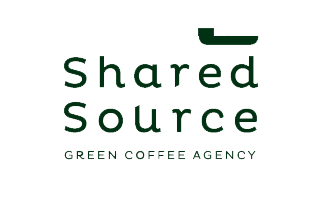
COLOMBIA
OUR FIRST LOVE, FOREVER INSPIRING US WITH RENEGADE YOUNG GUN PRODUCERS.
In Colombia we have realized the fullest manifestation of our aspirations to work with a portfolio of producers, and be present throughout the buying process at every stage, from providing producer micro-loans to overseeing final delivery of the green coffee to port. This is enabled via a technically skilled full time representative on the ground, who is able to assess coffee qualitatively. Our ability to assess producers' offers with high frequency counts for more each year in Colombia, with the increasing irregularity of harvest cycles due to changing weather patterns.
We seek to be the best possible partners to the producers we work with. We commit to understanding their livelihood needs so we can work together towards their financial security and see them move away from subsistence, or season-to-season income, which otherwise remains the norm.
We recognize that a guaranteed minimum price and firm purchase indications are necessary pre-harvest in order to give a producer the confidence to invest in good farm management. Early investment and a secure revenue stream enable a producer to invest in their infrastructure, in turn ensuring each lot is of a buyable standard. So everyone wins.
We provide further financial incentives and technical assistance for producers to transition towards sustainable farming practices. Technical assistance for better soil management and our sponsored peer-to-peer training program see producers moving away from a reliance on conventional fertilizers in favor of an wholistic agricultural system. We have seen conversion to farm-made pest control and fertilizer preparations increase plant resilience to changing climatic conditions and without increasing vulnerability to pests or suffering declining yields.
Finally, with strong personal connections to producers in Colombia, we are able to link roasters to producers and create trust and decreased risk for all parties.
GUATEMALA

GUATEMALA
Sourcing coffee from friends and partners in huehuetenango since 2015.
We are committed to farmgate purchases from long-term producer partners in Guatemala.
This means that we purchase coffee in parchment form, receiving it in the local unit – quintales – and paying in Guatemalan quetzales directly to producers’ or their association’s bank accounts.
To purchase coffee in parchment directly from producers, we visit Guatemala several times during the harvest season to check in with long-term partners. We ask about changes in their growing and processing regimes, learn about new and ongoing challenges, receive samples to roast and cup, and provide feedback. Once we’ve selected lots for purchase, we cup samples again to create micro-regional blends, select coffees to highlight as single-producer lots, and create milling and export instructions.
We contract dry-milling and export services with the best in the game – the fine folks at CAFECO, who themselves beautifully manage an organic farm. Through shared spreadsheets, group WhatsApp threads, as well as several visits a year, we work together to mill coffee, get it in individually identified GrainPro-lined jute bags, and load it into a container for the ocean voyage.
The bulk of our purchasing in Guatemala is from smallholder producers in Huehuetenango, and we prioritize producers who care for the environment in their farm practices. This means continuing to manage and plant shade trees, transitioning away from chemical inputs, carefully analyzing soil content to judiciously use fertilisers, carefully and responsibly managing waste water, and leaving natural areas on their farms to encourage biodiversity.
KENYA

KENYA
STRIVING TO CHALLENGE THE SYSTEM, STRENGTHENING OUR TIES.
Buying great quality coffee in Kenya is easy on the face of it. Quality of processing is practically institutionalized after decades of colonial influence, farmers are well supported technically, and in addition to rich soils, the best cultivars still represent the majority of the crop. Additionally, the Nairobi Coffee Exchange delivers a transparent auction system, with reliable sampling, lot traceability, lot storage, and public live bids. This is all backed up by legislation that enshrines the rights of all participants in the chain (from growers and millers to marketing agents and exporters) and guarantees that the money goes where it should.
These same conditions and strengths do however cause some inflexibility and limitations within the system. We are especially challenged when seeking to work directly to buy a smallholder’s coffee, facing milling minimums and the complications of needing to coordinate both marketing agent and exporter along with the farmer, to enable direct buying. These complications mean we can have less impact in improving agricultural practices, and also that we can’t set the price that the grower receives, as we can for example in Colombia.
We continue to work the angles to buy from (a) well-managed Cooperatives who have a track record of paying good dividends back to the farmers who contributed the cherries; (b) small farmers with mill-sufficient volume; and (c) small associations. We are grateful for the great relationship we have with an independent acting local exporter who helps facilitates this way of working.
ETHIOPIA

ETHIOPIA
COMMITTED TO EMERGING SMALL FARMER GROUPS.
While we do not have coffees from coffee’s motherland available for purchase at present, we are strongly and deeply committed to working in Ethiopia, and we remain elbow deep in wrangling shipping avenues for 2021’s finest.
We have relationships with Cooperatives and Unions, private exporters and export handlers, as well as emerging small farmers groups. We are on the trail now to work with individual small farmers who can produce export-feasible micro-lots.
While working in Ethiopia is challenging and highly complicated we aspire to work in a way that provides benefits all the way to the smallest of smallholder farmers and their communities. We are undaunted by the recognition that this is the work of a lifetime, a work forever in progress.
